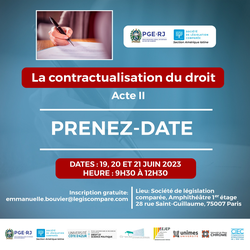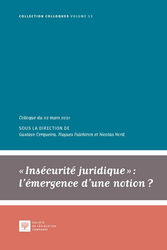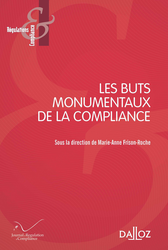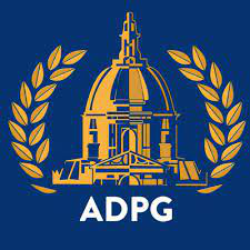Food for thoughts

Updated: March 15, 2024 (Initial publication: Nov. 30, 2023)
Publications

🌐follow Marie-Anne Frison-Roche on LinkedIn
🌐subscribe to the Newsletter MAFR Regulation, Compliance, Law
🌐subscribe to the Video Newsletter MAFR Surplomb
____
 ► Full Reference: M.-A. Frison-Roche, Births of a branch of Law: Compliance Law, Working Paper, November 2023.
► Full Reference: M.-A. Frison-Roche, Births of a branch of Law: Compliance Law, Working Paper, November 2023.
____
📕This Working Paper was drawn up as a basis for a contribution to the collective book given to Professor Louis Vogel, published in 2024
____
► Summary of this Working Paper: The study looks at the various movements that have given birth to Compliance Law, with particular emphasis on Competition Law.
After a preliminary reflection on the construction of the legal system into branches of Law, their classification in relation to each other, the difficulty encountered in this respect by Economic Law, and the various movements that give birth to one of them, the diversity of which the branch subsequently keeps track of, the study is constructed in 4 parts.
To find out what gave rise to Compliance Law, the first part invites us to reject the narrow perspective of a definition that is content to define it by the fact of "being conform" with all the applicable regulations. This has the effect of increasing the efficacy of the regulations, but it does not produce a branch of Law, being just a set of tools like others.
The second part of the study aims to shed some light on what appears to be an "enigma", as it is often claimed that this is the result of a soft method, or of an American political decision, or of as many regulations as there are occasions to make. Instead, it appears that in the United States, in the aftermath of the 1929 crisis, it was a decision of establishing an authority and rules to prevent another atrocious collapse of the system, while in Europe in 1978, in memory of the use of files of personal and racial information, it was a question of establishing an authority and rules to prevent an atrocious attack on human rights. A common element that aims for the future ("never again") but not the same object of preventive rejection. This difference between the two births explains the uniqueness and diversity of the two Compliance Laws, the tensions that can exist between the two, and the impossibility of obtaining a global Law.
The third part analyses the way in which Competition Law has given rise to conformity: a secondary branch which is a guarantee of conformity with competition rules. Developed in particular through the soft law issued by the competition authorities, the result is a kind of soft obedience, a well-understood collaboration of the procedural type through which the firm educates, monitors and even sanctions, without leaving the cercle of Competition Law, of which conformity is an appendix. The distance between a culture of conformity and the substantial Compliance Law can be measured here.
The fourth part aims to show that Competition Law and Compliance Law are two autonomous and articulated branches of Law. Since Compliance Law is a branch of Law built on Monumental Goals, in particular the sustainability of systems and the preservation of the human beings involved so that they are not crushed by them but benefit from them, the current challenge of European integration is to build the pillar of Compliance Law alongside the competitive pillar. Jurisdictions are in the process of doing this and of linking the two.
____
🔓read the Working Paper below⤵️
March 14, 2024
Thesaurus : Doctrine

► Référence complète : W. Decock, J. Hallebeek et T. Wallinga, Fondements romains du droit, Larcier Intersentia, coll. "Précis de la Faculté de Droit et de Criminologie de l'Université catholique de Louvain", 2024, 458 p.
____
____
📗lire le sommaire de l'ouvrage
____
📗lire la table des matières de l'ouvrage
____
► Résumé de l'ouvrage (fait par l'éditeur) : "Ce manuel transporte le lecteur au coeur du creuset des cultures juridiques européennes : le droit romain et ses interprétations évolutives à travers les siècles. Véritable socle du droit privé, le droit romain a forgé des concepts juridiques fondamentaux tels que l’émancipation, la succession ab intestat, le fidéicommis, l’usufruit, la responsabilité aquilienne, la gestion d’affaires, le commodat, l’action rédhibitoire, et bien d’autres. Mais au-delà de la terminologie de base du droit, les Romains ont façonné la grammaire même du raisonnement juridique et fourni les clés de l’administration de la justice en Europe et au-delà.
Plaçant l’accent sur des domaines clés tels que le droit des biens, les contrats et la responsabilité civile, cet ouvrage explore également la procédure, le droit des personnes et les successions dans la tradition romaine. Une attention particulière est accordée aux recyclages, souvent empreints d’une certaine créativité interprétative, des textes du Corpus iuris civilis de l’Empereur Justinien (527-565) aux époques médiévale et moderne. Dès la création des universités à la fin du XIe siècle, c’est en effet autour du Corpus iuris civilis que s’est édifiée la formation des juristes et plus largement celle des responsables de la société.
Pour l’étudiant.e en quête de maîtrise du langage et du raisonnement juridiques, l’étude du droit romain s’impose encore aujourd’hui comme une voie privilégiée, offrant une immersion inégalée dans les fondements des systèmes juridiques modernes. En outre, l’analyse du droit romain permet à toute personne intéressée de se familiariser avec un langage technique qui, pendant de nombreux siècles, a formé les esprits des hommes et femmes lettrés. De ce fait, la tradition romaniste est devenue une sorte de deuxième Bible de l’Occident (P. Legendre) et une partie substantielle du patrimoine culturel de l’humanité.".
________
March 13, 2024
Conferences

🌐follow Marie-Anne Frison-Roche on LinkedIn
🌐subscribe to the Newsletter MAFR Regulation, Compliance, Law
____
► Full Reference: M.-A. Frison-Roche, "Discussion" ("Discussion"), in E. Renaud & L. Turcat (dir.), Regards sur la justice, 10ième séance, École normale supérieure (ENS), Paris, Salle Dussane, 45 rue d’Ulm, 75005 Paris, April 24, 2024
____
🧮See the full programme of this event
____
► Presentation of the conférence:
________

Feb. 19, 2024
Publications

🌐 follow Marie-Anne Frison-Roche on LinkedIn
🌐subscribe to the Newsletter MAFR Regulation, Compliance, Law
____
 ► Full Reference: M.-A. Frison-Roche, Compliance and conformity: distinguishing them to articulate them, Working Paper, February 2024.
► Full Reference: M.-A. Frison-Roche, Compliance and conformity: distinguishing them to articulate them, Working Paper, February 2024.
____
📝 this working paper was drawn up to serve as a basis for the article published in French in the Chronique MAFR - Compliance Law, published in the Recueil Dalloz.
____
► Summary of this Working Paper: The words "conformité" and "compliance" are sometimes used interchangeably, presenting "conformité" as the translation into good legal French vocabulary of "compliance", which would come from the American system. This is not true, however, because each of these terms refers to two distinct and even opposing concepts.
"conformity"' would require companies to show that they are actively obeying all the 'regulations' applicable to them, regardless of their content. "Compliance Law" is a new substantial branch of Law that derives its normativity from the "Monumental Goals" targeted by the political and public authorities: these monumental goals are intended to ensure that systems do not collapse in the future (Negative Monumental Goals), or even improve (Positive Monumental Goals). The systems concerned are banking, finance, energy, health, transport, digital and climate systems. The scope of Compliance Law is therefore both much more limited and more ambitious.
Distinguishing between the two allows us to put conformity back where it belongs, as a tool of Compliance Law. As such, conformity justifies the collation and correlation of information, with the algorithmic system playing a major role in this. On the other hand, the human concern that underpins Compliance Law justifies making training and the actions of in-house lawyers, attorneys and judges, central to it. The evidentiary system of Compliance that is currently being developed is based on evidentiary techniques rooted on the one hand in the tool of conformity and on the other in the culture of Compliance, which can be articulated as soon as they are no longer confused.
____
🔓read the working paper below⤵️
Jan. 24, 2024
Thesaurus : Doctrine

► Référence complète : M. Caffin-Moi, "Les femmes dans les instances de direction des sociétés", in J. Houssier & M. Saulier (dir.), Les femmes et le droit. Les discriminations invisibles, Dalloz, coll. "Thèmes & Commentaires", 2024, pp. 111-122
____
► Résumé de l'article :
____
🦉Cet article est accessible en texte intégral pour les personnes inscrites aux enseignements de la Professeure Marie-Anne Frison-Roche
________
Jan. 24, 2024
Thesaurus : Doctrine

► Référence complète : J. Houssier & M. Saulier (dir.), Les femmes et le droit. Les discriminations invisibles, Dalloz, coll. "Thèmes & Commentaires", 2024, 162 p.
____
📗lire la 4ième de couverture
____
📗lire la table des matières
____
📝consulter une présentation de l'article de 🕴️Marie Caffin-Moi, "Les femmes dans les instances de direction des sociétés"
________

June 21, 2023
Publications

♾️follow Marie-Anne Frison-Roche on LinkedIn
♾️subscribe to the Newsletter MAFR Regulation, Compliance, Law
____
► Full Reference: M.-A. Frison-Roche, Conditions required to promote the "contractualisation" of the Law, Working Paper, June 2023.
____
🎤This Working Paper has been done as a basis for the closing conference of the colloquia La contractualisation du droit. Acte II, organised by the Société de législation comparée (SLC) and the Procuradoria Geral do Estado do Rio de Janeiro (PGE-RJ), on 19, 20 and 21 June 2023.
____
📝It is also the basis of the article "Les conditions requises pour favoriser la "contractualisation" du droit" ("Conditions required to promote the "contractualisation" of Law"), published in the book 📗La contractualisation du droit. Approches françaises et brésiliennes (Contractualisation of Law. French and Brazilian approaches).
____
► English Summary of the Working Paper :
____
🔓read the Working Paper⤵️
June 21, 2023
Conferences

♾️follow Marie-Anne Frison-Roche on LinkedIn
♾️subscribe to the Newsletter MAFR Regulation, Compliance, Law
____
► Full Reference: M.-A. Frison-Roche, "Favoriser ou pas la « contractualisation » du Droit" ("To favour or not the "contractualisation" of the Law"), final speech in Société de législation comparée (SLC) and Procuradoria Geral do Estado do Rio de Janeiro (PGE-RJ), La contractualisation du droit. Acte II, Paris, 21 June 2023.
____
🧮See the full programme of this event (in French).
The conference is held in French
________
June 15, 2023
Thesaurus : Doctrine

► Référence complète : A. Beckers & G. Teubner, Three Liability Regimes for Artificial Intelligence: Algorithmic Actants, Hybrids, Crowds, Pedone, 2018.
____
► Présentation de l'ouvrage (par les auteurs) : This book proposes three liability regimes to combat the wide responsibility gaps caused by AI systems – vicarious liability for autonomous software agents (actants); enterprise liability for inseparable human-AI interactions (hybrids); and collective fund liability for interconnected AI systems (crowds). Based on information technology studies, the book first develops a threefold typology that distinguishes individual, hybrid and collective machine behaviour. A subsequent social science analysis specifies the socio-digital institutions related to this threefold typology. Then it determines the social risks that emerge when algorithms operate within these institutions. Actants raise the risk of digital autonomy, hybrids the risk of double contingency in human-algorithm encounters, crowds the risk of opaque interconnections. The book demonstrates that the law needs to respond to these specific risks, by recognising personified algorithms as vicarious agents, human-machine associations as collective enterprises, and interconnected systems as risk pools – and by developing corresponding liability rules. The book relies on a unique combination of information technology studies, sociological institution and risk analysis, and comparative law. This approach uncovers recursive relations between types of machine behaviour, emergent socio-digital institutions, their concomitant risks, legal conditions of liability rules, and ascription of legal status to the algorithms involved.
June 7, 2023
Thesaurus : Doctrine
► Référence complète : F.C. Matsumoto, « Qu’est-ce que la « souveraineté » en « droit international économique » ? (quelques usages historiques et contemporains du mot)», Revue Droits, PUF, 2023/2, n°78, pp.205-232.
____
🦉Cet article est accessible en texte intégral pour les personnes inscrites aux enseignements de la Professeure Marie-Anne Frison-Roche
________
April 13, 2023
Thesaurus : Doctrine
► Référence complète : S. Djemni-Wagner, avec la collaboration de V. Vanneau, Droit(s) des générations futures, IERDJ, coll. "Études", 2023, 155 p.
____
____
📓lire la présentation du rapport
________
April 9, 2023
Law by Illustrations

► Référence complète : M.-A. Frison-Roche., "Une représentation du Droit des internements abusifs sur le ton de la comédie : 𝑯𝒂𝒓𝒗𝒆𝒚", billet avril 2023.
___
En 1950 sort un film présenté comme une comédie : Harvey.
Ce film est proprement prodigieux. Son objet paraît être un lapin blanc, celui-ci est moins préoccupé que l'autre de son retard, sauf qu'il accompagne depuis l'enfance un homme qui paraît lui aussi en décalage avec la bonne société dans laquelle il vit.

Joué admirablement par James Stewart, je personnage principal est un homme de 42 ans (42, chiffre magique en mathématiques...) qui avait tout pour lui : intelligent, il avait fait ses études à Yales et jouit de la considération d'autrui car il est le plus charmant des convives. Il vit dans une des plus belles maisons de sa petite ville car c'est à lui que sa grand-mère a tout légué. Il y accueille sa sœur et la fille de celle-ci.
Sa nature le pousse à aller dans des cafés où il boit des martinis et en offre à toutes les personnes qu'il rencontre et qu'il invite chez lui à un "dîner informel", affirmant que l'hôte sera accueilli avec grand plaisir par la maisonnée, discours tenu par exemple un homme qui vient de sortir de prison ou un manœuvre qui travaille toute la journée sur des chantiers. Il le fait selon le protocole, en donnant sa business card, en précisant à chaque fois à son interlocuteur, quel que soit celui-ci, qu'il ne faut pas utiliser ce numéro de téléphone, trop ancien, mais celui-là.
Il prétend être toujours accompagné d'Harvey, qui serait un lapin blanc d'un mètre 90, à qui il offre le deuxième martini et avec lequel il discute depuis l'enfance. Harvey serait un pooka, créature qui est ce que l'on veut.
Sa sœur décide de le faire interner. S'en suivent des péripéties, des scènes burlesques et touchantes, des drames et des affrontements. Le personnage et son double les traversent avec grâce et une grande amabilité.
____
De ce film magnifique, l'on peut avoir une vision sociologique, puisque les autres personnages stigmatisent le comportement du personnage, estimant qu'il doit être mis hors de la société grâce à un internement d'office car il boit trop de martinis et fréquente des personnes qui ne sont pas de la bonne soirée, comme des ouvriers du bâtiment, ce qui est présentée par sa sœur comme une preuve incontestable de folie.
L'on peut en avoir aussi une vision philosophique, puisque le personnage accepte toujours de discuter avec quiconque, notamment avec les médecins, puisqu'il raconte que sa mère lui expliqua quand il était petit que l'on pouvait être à la fois intelligent et aimable mais que s'il fallait choisir alors il convenait être aimable et paraître imbécile. Il avait choisi de suivre ce sage conseil de sa mère, dont il gardait ainsi le souvenir.
L'on peut en avoir encore une vision psychologique, le film projetant sur les murs l'ombre du lapin protecteur et aimable, ne laissant pas boire en solitaire, double de soi-même. Le lapin est d'ailleurs également vu par la sœur du personnage, endeuillée comme lui, tandis que les uns après les autres, le directeur de l'asile psychiatrique recherche la compagnie de la projection qui lui permet d'exprimer son désir de partir ailleurs, le personnage l'aidant à formuler cela, comme celui-ci aide tous ceux qu'il croise à trouver leur chemin, finit par le trouver, tandis que l'infirmier cherchant la définition du pooka dans le dictionnaire trouve une description dans un texte écrit qui se met à s'adresser directement à lui.
Quel beau film. Chacun se dit : il suffit donc de s'arrêter un instant et je rencontrerai ce grand sage qui me donnera le savoir et je trouverai mon chemin vers la vie heureuse.
____
Mais privilégions une vision juridique de ce film extraordinaire.
Il s'agit d'une famille qui veut faire internet un de ses membres, contre la volonté de celui-ci.
Pour cela, la sœur trouve des preuves, qui sont simplement ce qu'elle considère son excentricité, qui nuit à l'entrée de sa propre fille dans le monde. Mais avant tout, elle demande à un grand "ami de la famille" : un "Juge", qui va rédiger le document pour ce faire. Celui-ci est tout prêt à le faire.
Les rebondissements font que c'est elle qui est internée, plongée dans un bain glacé, forcée de prendre des médicaments destinés à l'assommer, n'arrivant à s'en sortir que grâce au personnage principal qui prend toujours soin de tous. C'est donc celui qu'elle voulait faire interner abusivement qui la sauve de l'internement abusifs.
Dès son retour à la maison, elle décide de faire un procès au directeur de l'établissement médical et à ses médicaux, et appelle pour cela ce même personnage du "juge". Il faut donc comprendre que dans ce conte juge et avocat sont les deux faces d'une même idée qu'est le Droit. Puisque le juge à la fois conseille, explique la règle, défend, poursuit et condamne. Quand on disserte sur le non-cumul des fonctions, repensons à ce film.
Pour éviter la faillite de l'établissement médical qui peut s'en suivre, les médecins, qui maintenant considèrent que la sœur est la folle et le personnage principal celui qui est la personne saine d'esprit, font mille grâce à celui-ci pour le séduire et le convaincre du bien-fondé de leurs actions, lui proposant des cadeaux, tandis que celui-ci continue de leur donner sa carte de visite et de leur inviter à un "dîner informel".
Tout juriste au fait du Droit des internements abusifs regardera plusieurs fois Harvey, histoire qui, elle finit bien, le ton de la comédie doit être préservé, sans qu'il soit besoin qu'un Législateur n'intervienne pour établir une loi anti-cadeaux ou conférer des droits spécifiques aux personnes victimes de telles situations.
Non dans les films il n'est pas besoin de Droit. Depardon n'a pas encore donné à avoir son terrible documentaire sur la façon dont le Droit sur les internements d'office est appliqué : 12 jours.
On va juste voir en famille un film si amusant : Harvey.
________
Feb. 16, 2023
Thesaurus : Doctrine
► Référence complète : J. Habermas, Espace public et démocratie délibérative : un tournant, Gallimard, 2023, 144 p.
____
Lire la présentation de l'ouvrage par Jean-Pierre Gabrielli pour Non-Fiction.
Lire la présentation de Marc Lebiez pour EAN
____
📧Lire l'article écrit à partir de cet ouvrage dans la Newsletter MAFR Law, Compliance, Regulation ; 🔴𝑳'𝒆𝒔𝒑𝒂𝒄𝒆 𝒑𝒖𝒃𝒍𝒊𝒄 𝒅é𝒍𝒊𝒃é𝒓𝒂𝒕𝒊𝒇, 𝒎é𝒕𝒉𝒐𝒅𝒆 𝒎𝒐𝒅è𝒍𝒆 𝒑𝒐𝒖𝒓 𝒍𝒂 𝒎𝒊𝒔𝒆 𝒆𝒏 œ𝒖𝒗𝒓𝒆 𝒅𝒖 𝒅𝒆𝒗𝒐𝒊𝒓 𝒅𝒆 𝒗𝒊𝒈𝒊𝒍𝒂𝒏𝒄𝒆, 6 avril 2023.
________
Feb. 8, 2023
Publications

🌐follow Marie-Anne Frison-Roche on LinkedIn
🌐subscribe to the Newsletter MAFR Regulation, Compliance, Law
____
► Full Reference: M.-A. Frison-Roche, "Instaurer l'insécurité juridique comme principe, outil de prévention des crises systémiques catastrophiques totales" ("Establishing legal uncertainty as a principle and a tool for preventing total catastrophic systemic crises"), in G. Gerqueira, H. Fulchiron et N. Nord (eds.), Insécurité juridique : l'émergence d'une notion ?, Société de législation comparée, coll. "Colloques", vol. 53, 2023, pp. 153-167.
___
📝read the article (in French)
____
🚧read the bilingual Working Papier which is the basis of the conference and this article
____
🎤watch the conference of March 22, 2021 that took place in the Cour de cassation (French Court de cassation) and for which this reflection was globally led
____
► English Summary of the article: "whatever it takes". In 2015, Mario Draghi used this formula to aim for the defence of the European currency, when the Euro was in danger of collapsing under the dance of the speculators who would be enriched by its collapse. Rarely has a formula been more violently political and more strongly prescriptive. It contributed to his being dubbed "Super Mario", as in the video game. The formula was used again in 2020 by the Président de la République Française (President of the French Republic) in the face of the financial turmoil caused by the health crisis that led to similar calculations. It goes beyond the mere "financial cost". With this formula, the President of the European Central Bank stated that the economic crisis in Europe was such that the institution would do everything in its power to put an end to it, without any limits; that all those who, by their behaviour, even supported by their legal prerogatives, in this case the speculators, because they were destroying the economic and financial system, would come up against this and would themselves be swept away by the Central Bank because the latter's mission, in that it is absolutely to safeguard the Euro itself, would prevail "quoi qu'il en coûte" ("whatever the cost"). At one point, the master stood up. If the royal position is the seated position, when he listens and judges, it is by rising that he shows his acceptance of also being the master, because he is in charge of more and will use everything to win.
More broadly, we might consider drawing up a positive concept of legal uncertainty (which is bound to please the Hegelians), increasing legal certainty: this would make it possible to associate a clearer legal regime with the hypotheses of legal uncertainty. Indeed, rather than sweeping Law under the carpet, which explains many of the tensions between the Conseil constitutionnel (French Constitutional Council) and the Conseil d'État (Council of State) on the one hand, and the legislator and the government on the other, concerning the "État d'urgence" ("State of emergency"), we could set out the conditions in which legal uncertainty makes it possible to set aside or limit rules.
The idea proposed is therefore that in "extraordinary situations", legal uncertainty would be a dimension, or even a principle which would be admissible. And developing this first point, it is proposed that the hypothesis of an "economic crisis" justifies a dimension, or even a principle of "legal uncertainty". But this first assertion needs to be tested. Is an economic crisis, a concept that needs to be defined, if it is to have such a major reversal effect, such an extraordinary 'situation'? Furthermore, to deal with this extraordinary situation constituted by an 'economic crisis', how much legal uncertainty would be legally acceptable, or even legally claimed? Could we even conceive of a reversal of principle that would bring applicable Law to an economic crisis under the aegis of legal uncertainty? In such a case, the question that then arises is to determine the conditions and criteria for emerging from the economic crisis, or even to determine the elements of perspective of an economic crisis, which could justify in advance the admission of an injection of legal uncertainty. Above all, Law has control over the future.
The economic crisis should therefore be legally defined as an exceptional situation, before stressing that Regulation and Compliance Law, because on the one hand we move from crisis to crisis and on the other hand the whole system aims to avoid and manage the future crisis in advance or to exclude it; this is particularly true of health and climate issues (the way the health crisis was managed was to 'decree' that the State should initiate an economic crisis), which means that legal insecurity is no longer seen as a distant exception, a failure to be combated, but as a lever that can be used to influence the future.
________
Dec. 15, 2022
Thesaurus : Doctrine
► Référence complète : P. Larouche, "Pluralisme et multivalence en analyse économique du droit", Revue de droit d'Assas, n°24, déc. 2022, p.126-129.
----
► Résumé de l'article : L'auteur montre que l'on a parfois une vision déformée de l'Analyse économique du Droit. Après avoir souligné que l'interdisciplinarité débute souvent par une "phase de déception initiative", il rappelle les profits de celle-ci à condition que chaque discipline respecte l'autre.
Or, dans l'analyse économique du droit, chacun s'est souvent bloqué, l'on en reste souvent au premier stade.
Sans doute, parce que ce mouvement né aux Etats-Unis il y a 60 ans, participait alors au mouvement de l'époque visant à faire de l'économie "une science à part entière à l'instar des sciences naturelles", mais ne prétendait pas décrire le monde ni constituer un système de preuves.
Ce n'est que plus tard que la "théorie du coût social" de Coase (1960) a été perçue comme pouvant s'appliquer à tout, ce que l'auteur ne prétendait pas.
Ce n'est qu'en 1970 que Posner y associe ce qui serait une supériorité du Common Law, le courant Law and Economics étant rejeté par les non anglo-américains.
Mais ce double lien entre la conception très libérale de 1960 et très culturelle de 1970 n'est pas intrinsèque à l'AED.
En outre, pour Coase, les coûts de transactions sont faibles, parce qu'ils sont engendrés par le système juridique lui-même. Aujourd'hui, on admet au contraire qu'ils sont élevés parce qu'ils constituent par l'ensemble du système juridique, l'AED intégrant le pluralisme juridique.
Dès lors, le Droit reprend face à l'Economie à la façon sa spécificité et son ampleur.
L'AED ne peut plus aussi facilement que dans la conception précédente en tirer des conséquences normatives, où la réglementation américaine semblait pouvoir engendrer des solutions applicables partout parce qu'enrichie par l'analyse économique.
Corrélativement, le Droit doit moins rejeter l'analyse économique, dès l'instant que ce qu'est le Droit y est respecté, notamment l'économie de l'information.
________
Sept. 25, 2022
Publications
🌐 suivre Marie-Anne Frison-Roche sur LinkedIn
🌐 s'abonner à la Newsletter MAFR Regulation, Compliance, Law
____
► Référence complète : M.-A. Frison-Roche, "Fonder la compliance", in Revue de l'ACE, La compliance, n° spéc. n°157, septembre 2022, p.17-31.
____
► Résumé de l'article : L'article traite le sujet en 20 étapes
- Pourquoi fonder les pratiques de compliance ? Pour des impératif pratiques
- Fonder les pratiques de compliance pour rendre supportables, car compréhensibles, les pouvoirs et les charges concentrés dans les outils de Compliance
- Fonder les pratiques de compliance pour maîtriser un savoir technique exponentiel
- Fonder les pratiques pour y trouver la part du Droit
- Fonder la Compliance sur les process d’efficacité
- Rendre supportable la Compliance fondée sur les process d’efficacité par un mix de procédure et d’éthique
- Les professionnels de la Compliance fondée sur des process
- La place particulière de l’avocat et du juge dans la Compliance fondée sur des process
- Fonder la Compliance sur l’obligation de donner à voir par avance que l’on se conforme à la réglementation applicable
- L’aporie de la Compliance fondée sur l’obligation de donner à voir par avance que l’on se conforme à la réglementation applicable
- Les charges engendrées de la Compliance fondée sur l’obligation de donner à voir par avance que l’on se conforme à la réglementation applicable
- L’impraticabilité de la Compliance fondée sur l’obligation de donner à voir par avance que l’on se conforme à la réglementation applicable
- Fonder la Compliance sur des buts substantiels ponctuels
- Les professionnels de la Compliance impliquées par la Compliance fondée sur des buts substantiels ponctuels
- Fonder la Compliance par des buts substantiels globaux et à venir
- Fonder la Compliance par les Buts Monumentaux, négatifs et positifs
- Les professionnels de la Compliance fondée sur les Buts Monumentaux
- La place particulière de la population concernée et de l'Etat dans la Compliance fondée sur les Buts Monumentaux
- La place particulière de l’avocat et du juge dans la Compliance fondée sur les Buts Monumentaux
- L'avenir du Droit de l'Avenir
____
____
____
lire la revue dans son intégralité
_________
Sept. 1, 2022
Publications

♾️follow Marie-Anne Frison-Roche on LinkedIn
♾️subscribe to the Newsletter MAFR Regulation, Compliance, Law
____
► Full Reference: M.-A. Frison-Roche, "Les Buts Monumentaux, cœur battant du Droit de la Compliance" ("Monumental Goals, beating heart of Compliance Law"), in M.-A. Frison-Roche (ed.), Les Buts Monumentaux de la Compliance, coll. "Régulations & Compliance", Journal of Regulation & Compliance (JoRC) and Dalloz, 2022, p. 21-44.
____
📝read the article (in French)
____
🚧read the bilingual Working Paper which is the basis of this article, with additional developments, technical references and hyperlinks
____
📕read a general presentation of the book, Les Buts Monumentaux de la Compliance, in which this article is published
____
► Summary of the article: Compliance Law can be defined as the set of processes requiring companies to show that they comply with all the regulations that apply to them. It is also possible to define this branch of Law by a normative heart: the "Monumental Goals". These explain the technical new legal solutions, thus made them clearer, accessible and anticipable. This definition is also based on a bet, that of caring for others that human beings can have in common, a universality.
Through the Monumental Goals, appears a definition of Compliance Law that is new, original, and specific. This new term "Compliance", even in non-English vocabulary, in fact designates a new ambition: that a systemic catastrophe shall not be repeated in the future. This Monumental Goal was designed by History, which gives it a different dimension in the United States and in Europe. But the heart is common in the West, because it is always about detecting and preventing what could produce a future systemic catastrophe, which falls under "negative monumental goals", even to act so that the future is positively different ("positive monumental goals"), the whole being articulated in the notion of "concern for others", the Monumental Goals thus unifying Compliance Law.
In this, they reveal and reinforce the always systemic nature of Compliance Law, as management of systemic risks and extension of Regulation Law, outside of any sector, which makes solutions available for non-sector spaces, in particular digital space. Because wanting to prevent the future (preventing evil from happening; making good happen) is by nature political, Compliance Law by nature concretizes ambitions of a political nature, in particular in its positive monumental goals, notably effective equality between human beings, including geographically distant or future human beings.
The practical consequences of this definition of Compliance Law by Monumental Goals are immense. A contrario, this makes it possible to avoid the excesses of a "conformity law" aimed at the effectiveness of all applicable regulations, a very dangerous perspective. This makes it possible to select effective Compliance Tools with regard to these goals, to grasp the spirit of the material without being locked into its flow of letters. This leads to not dissociating the power required of companies and the permanent supervision that the public authorities must exercise over them.
We can therefore expect a lot from such a definition of Compliance Law by its Monumental Goals. It engenders an alliance between the Political Power, legitimate to enact the Monumental Goals, and the crucial operators, in a position to concretize them and appointed because they are able to do so. It makes it possible to find global legal solutions for global systemic difficulties that are a priori insurmountable, particularly in climate matters and for the effective protection of people in the now digital world in which we live. It expresses values that can unite human beings.
In this, Compliance Law built on Monumental Goals is also a bet. Even if the requirement of "conformity" is articulated with this present conception of what Compliance Law is, this conception based on Monumental Law is based on the human ability to be free, while conformity law supposes more the human ability to obey.
Therefore Compliance Law, defined by the Monumental Goals, is essential for our future, while conformity law is not.
________
Sept. 1, 2022
Publications

♾️follow Marie-Anne Frison-Roche on LinkedIn
♾️subscribe to the Newsletter MAFR Regulation, Compliance, Law
____
► Full Reference: M.-A. Frison-Roche (ed.), Les Buts Monumentaux de la Compliance (Compliance Monumental Goals), coll. "Régulations & Compliance", Journal of Regulation & Compliance (JoRC) and Dalloz, 2022, 520 p.
____
📘In parallel, the English version of this book, Compliance Monumental Goals, is published in the collection co-published by the Journal of Regulation & Compliance (JoRC) and Bruylant.
____
📅This book comes after a cycle of colloquia 2021 organised by the Journal of Regulation & Compliance (JoRC)and its Universities partners.
____
📚This volume is one of the books dedicated to Compliance in the collection Régulations & Compliance: read the presentations of the other titles of this collection.
____
► General presentation of the book: Seize Compliance by its mind: its Monumental Goals. The notion of "monumental goals" of Compliance was proposed in 2016 by Marie-Anne Frison-Roche📎
Compliance Monumental Goals are targeted ex ante by regulations, contracts, CSR, and international treaties. Creating an alliance between business and political authorities, aiming for a new form of sovereignty. The presence in litigation of these Monumental Goals of global dimension renews the responsibilities and the Judge office. Describing and conceiving these Monumental Goals makes it possible to anticipate Compliance Law, which is more powerful every day.
____
🏗️General construction of the book: The book opens with a double Introduction, the first summarizing the book (in free access) and the second, more substantial, proposing the Monumental Goals as definition of Compliance Law putting them at its "beating heart", giving this new branch of law its originality and specificity, explaining what, in the History of the United States and Europe, gave birth to this singular corpus and justifies a substantial definition of Compliance Law. The concept of Monumental Goals is explained, justifying both systemic and political nature of Compliance Law, the practical consequences of which legal specific rules are thus better identified and limited, since Compliance Law does not lead to all-obedience. We can then determine what we can expect from this Law of the Future that is Compliance Law.
From there, the book unfolds in 5 titles.
A first Title is devoted to the "radioscopy" of this notion, in itself and branch of Law by branch of Law.
A second Title aims to measure how the Monumental Goals are questioned by a crisis, for example in a health situation, but not in that example, if they aggravate it and must be discarded, or if, on the contrary, they are exactly conceived for this hypothesis. of crisis, risks, catastrophes and that it is advisable to exploit them, in order, in this "test", to benefit from the alliance between the political authorities, public powers and crucial operators.
Once made explicit and tested, the Monumental Goals must find a sure way to be considered. Therefore, a third Title aims to measure in principle and in practice how the Proportionality method can help the integration of Compliance, thus giving a new dimension to the Law without dragging it into insecurity and illegitimate grabbing of powers.
But because Compliance Monumental Goals express a very great ambition, the question of a bearable, even beneficial relationship with the international competitiveness of companies, standards and systems must be opened. This is the object of the fourth Title.
Finally, because the Monumental Goals express by nature a new ambition of the Law in a world which must not give up in what could be the prospect of its abyss, the fifth Title has for object the relationship between the Monumental Goals of Compliance and Sovereignty.
____
► Understand the book through the Table of Contents and the summaries of each article:
DOUBLE INTRODUCTION
🕴️M.-A. Frison-Roche, 📝Résumé de l'ouvrage Les buts monumentaux du droit de la compliance (free access : click here to read this article (in French))
🕴️M.-A. Frison-Roche, 📝Les Buts Monumentaux, cœur battant du Droit de la Compliance
I. LA NOTION DE BUTS MONUMENTAUX DE LA COMPLIANCE ("THE IDEA OF COMPLIANCE MONUMENTAL GOALS")
🕴️R.-O. Maistre, 📝Quels buts fondamentaux pour le régulateur dans un paysage audiovisuel et numérique en pleine mutation ?
🕴️A.V. Le Fur, 📝Intérêt et raison d’être de l’entreprise : quelle articulation avec les Buts Monumentaux de la Compliance ?
🕴️A. Le Goff, 📝La part des banques dans la concrétisation des Buts Monumentaux de la Compliance
🕴️J.-F. Vaquieri,📝Les "Buts Monumentaux" perçus par l'entreprise. L'exemple d'Enedis
🕴️M. Malaurie-Vignal, 📝Les Buts Monumentaux du droit du marché. Réflexion sur la méthode
🕴️D. de La Garanderie, 📝Sur les Buts Monumentaux de la Compliance sociale
🕴️C. Peicuti & 🕴️J. Beyssade, 📝La féminisation des postes à responsabilité dans les entreprises comme But de la Compliance. Exemple du secteur bancaire
🕴️I. Gavanon, 📝Le droit des données personnelles dans l’économie numérique à l’épreuve des Buts Monumentaux
🕴️B. Petit, 📝Les Buts Monumentaux du droit (européen) des relations de travail : un système mouvant aux équilibres à consolider
🕴️G. Beaussonie, 📝Droit pénal et Compliance font-ils système ?
🕴️Ch. Huglo, 📝À quelles conditions le Droit climatique pourrait-il constituer un But Monumental prioritaire ?
II. MISE EN OEUVRE DES BUTS MONUMENTAUX DE LA COMPLIANCE EN ARTICULATION DU PRINCIPE MAJEUR DE LA PROPORTIONNALITÉ ("IMPLEMENTATION OF COMPLIANCE MONUMENTAL GOALS IN ARTICULATION OF THE MAJOR PRINCIPLE OF PROPORTIONALITY")
🕴️L. Rapp, 📝Conformité, proportionnalité et normativité
🕴️B. Bär-Bouyssière, 📝Les obstacles pratiques à la place effective de la proportionnalité dans la Compliance
🕴️A. Mendoza-Caminade, 📝Compliance, proportionnalité et évaluation
🕴️L. Meziani, 📝Proportionnalité en Compliance, garant de l’ordre public en entreprise
🕴️M. Segonds, 📝Compliance, proportionnalité et sanction
🕴️M.-A. Frison-Roche, 📝Définition du principe de proportionnalité et définition du Droit de la Compliance
III. LES BUTS MONUMENTAUX DE LA COMPLIANCE ÉPROUVÉS PAR LES SITUATIONS DE CRISES ("THE COMPLIANCE MONUMENTAL GOALS TESTED BY CRISIS SITUATIONS")
🕴️A. Oumedjkane, A. Tehrani et P. Idoux, 📝Normes publiques et Compliance en temps de crise : les Buts Monumentaux à l'épreuve. Éléments pour une problématique
🕴️J. Bonnet, 📝La crise, occasion de saisir la Compliance comme mode de communication des autorités publiques
🕴️M.-A. Frison-Roche, 📝Place et rôle des entreprises dans la création et l'effectivité du Droit de la Compliance en cas de crise
IV. EFFECTIVITÉ DES BUTS MONUMENTAUX DE LA COMPLIANCE ET COMPÉTITIVITÉ INTERNATIONALE ("EFFECTIVENESS OF COMPLIANCE MONUMENTAL GOALS AND INTERNATIONAL COMPETITIVENESS")
🕴️B. Deffains, 📝L’enjeu économique de compétitivité internationale de la Compliance
🕴️F. Marty, 📝L'apport des programmes de conformité à la compétitivité internationale : une perspective concurrentielle
🕴️S. Lochmann, 📝Les agences de notation ESG et l'effectivité de la Compliance face à la compétitivité internationale
🕴️M.-A. Frison-Roche, 📝Appréciation du lancement d'alerte et de l'obligation de vigilance au regard de la compétitivité internationale
V. LA COMPLIANCE PORTÉE PAR LES BUTS MONUMENTAUX, NOUVELLE VOIE DE SOUVERAINETÉ ("COMPLIANCE SUPPORTED BY MONUMENTAL GOALS AND NEW WAY OF SOVEREIGNTY")
🕴️R. Bismuth, 📝Compliance et souveraineté : relations ambigües
🕴️L. Benzoni, 📝Commerce international, compétitivité des entreprises et souveraineté : vers une économie politique de la Compliance
🕴️M.-A. Boursier, 📝Les Buts Monumentaux de la Compliance : mode d'expression des États
🕴️S. Pottier, 📝Pour une Compliance européenne, vecteur d'affirmation économique et politique
🕴️Ch. André, 📝Souveraineté étatique, souveraineté populaire : quel contrat social pour la Compliance ?
🕴️M.-A. Frison-Roche, 📝Le principe de proximité systémique active, corollaire du renouvellement du principe de souveraineté par le Droit de la Compliance
________
🕴️M.-A. Frison-Roche, 📝Le Droit de la compliance, 2016.
Aug. 1, 2022
Compliance: at the moment

► Référence complète : Frison-Roche, M.-A., Quand on s'intéresse à la Compliance, lire "La Haine" de Günther Anders, 1ier août 2022.
___
► Introduction de l'article : Philosophe allemand, Günter Anders connut la Seconde Guerre mondiale, dût quitter l'Allemagne et vécut dans plusieurs pays. C'est avant tout un philosophe moral, habité par le pessimisme et l'idée que le nazisme n'était qu'une répétition générale, plutôt artisanale, de ce que nous attend : L'obsolescence de l'homme, son livre-maître qui en 1956 décrit le système économique comme ce qui broie les êtres humains en les réduisant à n'être plus que des êtres qui entretiennent des machines qui produisent des produits inutiles qu'ils consomment, les humains n'étant eux-mêmes que des machines désirantes.
En 1985 dans un volume paru en langue allemande et composé d'articles tous consacrés au thème de La haine, il donna comme contribution les éléments de travail de ce qu'il avait conçu comme dernière partie de son oeuvre démontrant l'appareillage obtenant "l'obsolescence de l'homme", dernier livre qu'il ne publia jamais.
Extrait de ce volume, ces documents de travail furent traduits en français et présentés par Philippe Ivernel : le titre en est La Haine.
I. LA FABRIQUE DE LA "HAINE COMME PRODUIT DE CONSOMMATION" POUR ENGENDRER DES COMBATS, PRODUCTEURS A LEUR TOUR DE HAINE : L'ARTICULATION DES DEUX HAINES
Anders est un penseur de la technique, de la technologie (comme l'est Jacques Ellul), expliquant qu'elle n'appartiendra plus à une élite mais au contraire à chacun dans notre vie quotidienne, se mettant ainsi au centre de tout, remplaçant notamment la politique, les êtres humains mécanisés devenant la matière première des machines.
Le titre original, La Haine à l'état d'antiquité désigne le fait que la société de consommation réduisant l'être humain à son aptitude à entretenir des machines et à se comporter lui-même comme une machine consommant les produits fabriqués par des machines, l'être humain ayant pour seul fonction de désirer consommer ce que produisent les machines, et désirant donc finalement rien d'autres qu'entretenir et développer les machines qui l'engloutissent sous tous ces biens, n'a plus de pensée que pour ce monde entièrement voué aux machines.
L'Amour et la Haine sont ainsi reléguées "à l'état d'antiquité" car pour trouver sa place dans ce système de désirs qui convergent vers les machines, il n'est besoin ni d'Amour ni de Haine. Il expose que cela se passe dans deux temps. Dans un premier temps, la Haine est fabriquée pour amener les humains à se battre contre des ennemis qu'ils ne connaissent même pas ; dans un second temps, ils sont suffisamment mécanisés pour attaquer sans que l'énergie de la Haine soit même nécessaire.
Le premier fragment de ses documents de travail expose la façon dont les êtres humains "aiment la Haine" car cela donne à chacun le sentiment d'exister : la Haine. "Je hais, donc je suis. Ou plus précisément : Donc je suis quelqu'un" (p.33).
Il reprend cette idée dans le deuxième fragment dont le titre est (en français dans l'édition allemande) : L'appétit vient en mangeant. Il expose que la Haine n'est pas au départ contre une personne particulière et pousse à l'attaquer. La Haine est à l'état pur, mais c'est plutôt l'atmosphère de haine et "l'amour de la haine". Il suffit de la cultiver et la tourner ensuite à volonté contre un tel ou un tel.
Il évoque ainsi une sorte d'industrie de la haine, en des termes qu'il met dans la bouche du personnage qui dirige la cité : "Sans doute est-il exact qu'ils combattent "leurs ennemis" parce qu'ils les haïssent. Sauf que cette haine envers "leurs ennemis" n'explose précisément pas en s'allumant d'elle-même-meme, ni parce que les premiers leur auraient fait quoi que ce soit. Mais uniquement par ceci que (et donc parce que) je leur livre la haine à chaque fois exigible. Ils la reçoivent de moi gratuitement à domicile. Exactement comme l'eau, le gaz et la TV. Et cette haine qui leur est acheminée, ils la consomment alors, et dans tout à fait dans mon sens à moi : car ils s'engagent, en effet, pleins de haine dans la lutte politiquement opportune. Après quoi commence aussi réellement ce dont vous venez de parler : la deuxième phase de la haine. Car à présent ils haïssent réellement du fait qu'ils combattent. La règle de la haine s'énonce comme suite : "Je combats quelqu'un - de ce fait je me mets à le haïr. L'appétit vient en mangeant, la haine vient en luttant". Ils se battent ainsi "avec appétence" et sont persuadés le faire "avec dignité", devant rester dans l'ignorance de l'absence de raison du combat (qui est la pure volonté de celui qui leur a envoyé la Haine).
Günther Anders fait ensuite expliquer par le personnage politique qu'il fait cela par moralité car il ne veut pas que les hommes en tuent d'autres juste par obéissance à ses ordres, ce qu'ils trouveraient immoral. Il leur fabrique alors de la Haine, de la Haine qu'ils aiment, qu'il dirige ensuite sur des groupes de personnes et ainsi dotés de cette première haine, ils attaquent ceux qu'ils haïssent, le combat accroissant par une seconde haine la première, et tout le système fonctionne bien. Il lui fait ainsi conclure : "C'est pourquoi ils ont besoin de haïr. C'est pourquoi je leur accorde de haïr. C'est pourquoi je leur ordonne de haïr.".
Le troisième fragment porte sur la guerre proprement dite. Anders expose que la Haine n'y est aujourd'hui plus requise parce que la technique permet aux soldats de n'être plus en contact avec les personnes qu'ils combattent, ni même d'être confrontés aux cadavres. La fabrique de la Haine serait donc devenue inutile. C'est pour cela aussi qu'elle aurait vocation à être rangée dans les antiquités... Les soldats sont devenus comme des robots.
Le quatrième fragment développe ce point, sur des soldats "aveugles en telos", au point qu'on pourrait davantage les qualifier "d'employés" des armées que de soldats, exécutant leur travail sans savoir sur qui ou quoi ils larguent les bombes, chacun étant désormais comme à l'arrière du front. Anders souligne que dans ce combat sans haine, mené par les ordinateurs, le combat ne prend jamais fin.
II. UNE EXTRAORDINAIRE ANTICIPATION DU SYSTEME COMMERCIALE ET POLITIQUE E DE HAINE
A. DISTINCTION DES DEUX HAINES ET ROBOTISATION DES ETRES HUMAINS
L'œuvre de Gunther Anders est particulièrement profitable pour comprendre le monde dans lequel nous vivons. Dans cette ébauche d'ouvrage, retenons l'idée d'une double haine : la Haine fabriquée comme un objet et apportée gratuitement à tout le monde car il y a chez chacun un "amour de la haine" qui est en soi, puisqu'en haïssant, on se sent exister.
La Haine est un objet économique pur, car elle n'a pas d'objet particulier. Elle est fabriquée, cultivée, diffusée, accrue, partagée. Ce n'est que dans un second temps, après avoir ainsi inséré de la Haine pure dans l'esprit des amoureux de la Haine, que l'on peut lui affecter un objet, une personne ou un groupe de personnes et qu'un combat contre ceux-ci peut commencer, producteur d'un second type de Haine. Les deux Haines s'accroissent l'une l'autre.
Le premier intérêt de cette conception est d'isoler ce premier temps de la Haine : une Haine à l'état pur, celle qui existe car haïr permet d'exister, indépendamment de l'objet de la haine. Ce n'est pas donc pas l'objet qui fait naître la Haine, mais l'amour de soi qui fait naître la Haine. Dans un second temps, c'est le hasard ou la manipulation d'un tiers (dans l'exemple pris par Anders le dirigeant politique, mais nous connaissons des influenceurs en dehors du cercle politique) qui offre à la Haine son objet. Mais Anders insiste sur le fait que ces objets sont substituables.
Par cette Haine fabriquée, les êtres humains ont donc l'impression d'exister. C'est alors un stade pire et paradoxal qui s'annonce : celui des êtres humains sans haine, parce qu'on leur aura ôté l'objet de Haine, alors même qu'on leur commande (comme à des "employés") de tuer des semblables, en les mettant technologiquement à distance de l'objet à détruire (Anders prend l'exemple du lancer de bombe). Ils deviennent des robots, et la déshumanisation est ainsi achevée.
C'est en cela que les 4 fragments constituent pleinement la dernière partie de l'œuvre centrale qu'est L'obsolescence de l'Homme.
B. LE MONDE NUMERIQUE, LES RÉSEAUX SOCIAUX ET L' "INTELLIGENCE ARTIFICIELLE"
Le travail publié en 1985 correspond à des réflexions élaborées juste après la Seconde Guerre mondiale et puisant dans les leçons de la Première.
Mais si l'on regarde le monde numérique dans lequel nous vivons, il est en premier lieu construit sur des technologies "neutres", une industrie de l'information qui transforme les êtres humains en consommateurs d'information et en source d'information, constituant eux-mêmes une masse de micro-informations.
En deuxième lieu, les plateformes, et plus particulièrement les réseaux sociaux, sont des espaces neutres, les entreprises qui les tiennent ne sont pas des éditeurs, et le produit pur qui y circulent le mieux est de la "Haine pure", qui est ce qui rapporte à ces entreprises le plus de revenus, les différents objets de haines étant interchangeables.
La Haine est devenue un objet qui est délivré à domicile et dont nous sommes abreuvés en permanence, notre "amour de la Haine" étant alimentée en continu, et sans doute accru.
En troisième lieu, les algorithmes sont présentés comme "intelligents", c'est-à-dire dotés d'une capacité non seulement d'apprentissage mais de choix et de discernement. L'intelligence artificielle serait le progrès, c'est-à-dire la disparation de la haine pour exemple pour prononcer les sanctions les plus adéquates. Les chiffres ont donc remplacé les êtres humains, ce qu'Anders visait à travers les "ordinateurs".
III. LE PROFIT QUE LE DROIT DE LA COMPLIANCE PEUT FAIRE DE LA PENSÉE DE GUNTHER ANDERS
A. LE DROIT DE LA COMPLIANCE, DROIT AYANT LA PRÉTENTION DE RÉDUIRE LA HAINE DANS L'ESPACE NUMÉRIQUE
Le Droit de la Compliance est une branche du Droit construit sur des prétentions politiques qui visent à concrétiser des "buts monumentaux".
🔴Marie-Anne Frison-Roche, 📝Les Buts Monumentaux, cœur battant du Droit de la Compliance, in Marie-Anne Frison-Roche (dir.), 📕 Les buts monumentaux de la compliance, Journal of Regulation & Compliance et Dalloz, coll. 📚Régulations & Compliance, 2022, p.21-44.
La lutte contre la diffusion de ce qu'il est pertinent de désigner comme l'amour naturel de la haine pure, qui se répand d'une façon virale dans l'espace numérique permettant à la haine d'être "portée à domicile" est une des objets majeurs du Droit de la Compliance.
Le Digital Services Act est imprégné de techniques de Compliance pour y parvenir.
Il ne s'agit pas de compter sur la moralité des personnes, puisque le cœur des humains est d'aimer la haine, ni de les remplacer par des machines car le remède est pire que le mal (la déshumanisation) mais sur la performance technique de ceux qui tiennent ce système économique-là : les plateformes elles-mêmes.
🔴M.A. Frison-Roche, 📝Se tenir bien dans l'espace numérique, in Mélanges en l'honneur de Michel Vivant, Penser le droit de la pensée, Dalloz et Lexis Nexis, 2020, pp. 155-168.
En combattant le feu par le feu, c'est-à-dire en obligeant ceux qui ont construit les techniques par lesquelles se diffusent la Haine à construire et à utiliser les techniques de contrôle, de détection et de prévention de celle-ci, le Droit de la Compliance, notamment grâce à son effet naturellement extraterritorial, exprime la prétention de ne pas laisser la Haine régner.
En outre, les Autorités publiques non seulement régulent mais encore supervisent les entreprises et leurs technologies, en l'espèce l'Arcom et la CNIL, dont les pouvoirs Ex Ante s'accroissent.
🔴R.-O. Maistre, Quels buts monumentaux pour le Régulateur dans un paysage audiovisuel et numérique en pleine mutation ?, in Frison-Roche, M.-A. (dir.), Les buts monumentaux de la Compliance, série "Régulations & Compliance", Journal of Regulation & Compliance (JoRC) et Dalloz, 2022.
B. LA DÉFINITION TÉLÉOLOGIQUE DU DROIT DE LA COMPLIANCE
L'œuvre d'Anders est parcourue par le désespoir moral d'êtres humains "sans telos", c'est-à-dire sans finalités qui leur soit propres. C'est ainsi qu'ils peuvent être saisis aisément par l'amour de la Haine, puisqu'aucun projet propre n'occupe leur temps et leur force.
Il peut en être de même pour la force du Droit.
Si le Droit ne devait être qu'une technique "réglementaire", "neutre", visant à "l'efficacité" des désirs de chacun et des réglementations accumulées, alors le Droit ne ferait qu'ajouter à la déshumanisation décrite par Anders.
Mais le Droit de la Compliance est par nature une branche du Droit téléologique : elle se définit par ses buts. Et ceux-ci sont "monumentaux".
Ces buts monumentaux ponctuels peuvent tous se ramener à ceci : protéger les êtres humains, afin que la description d'Anders ne soit pas exacte en son cœur désespéré.
🔴M.-A. Frison-Roche, 🚧 Fonder la Compliance, 2022
July 5, 2022
Interviews

► Référence complète : Frison-Roche, M.-A., entretien avec Olivia Dufour, « La Cour suprême a déclenché la bombe de la sécession. Que faire ? », 5 juillet 2022.
____
____
💬 Entretien mené à propos du sens, de la valeur et de la portée système de l'arrêt Dobbs v. Jackson rendu par la Cour suprême des Etats-Unis le 24 juin 2022.
► Présentation de l'interview par Olivia Dufour : Alors que l'arrêt Dobbs v. Jackson du 24 juin 2022 de la Cour suprême des Etats-Unis sur l'avortement n'en finit pas de susciter l'émotion, déjà d'autres droits fondamentaux menacent de perdre leur qualité de droit constitutionnel fédéral. A commencer par le mariage homosexuel. Mais ce n'est pas la seule conséquence de cette nouvelle jurisprudence ultra-conservatrice. Pour le professeur Marie-Anne Frison-Roche, ce qui s'apparente à un "suicide institutionnel" de la part de la Cour a déclenché un mouvement de sécession. En d'autres termes, les Etats-Unis sont en passe de se désunir. Pour autant, rien n'est perdu. Explications.
Les questions posées étaient les suivantes :
Actu-Juridique : L'arrêt de la Cour suprême américaine sur l'avortement a beaucoup ému en France. En réalité, cela ne semble être que le début d'un mouvement de fond. Qu'en est-il ❓ ?
🔑Réponse MaFR
Actu-Juridique : Qu'est-ce que cette conception originaliste qui semble désormais être celle de la Cour suprême 'arrêt de la Cour suprême américaine sur l'avortement a beaucoup ému en France. En réalité, cela ne semble être que le début d'un mouvement de fond. Qu'en est-il ❓
🔑Réponse MaFR
Actu-Juridique : On comprend donc que l'avortement n'ayant pas été envisagé au XIX siècle, il ne peut pas être protégé par la Constitution au XXIème siècle❓
🔑Réponse MaFR
Actu-Juridique : Cela engendre donc un séisme dépassant de loin les seules conséquence d'un revirement de jurisprudence ❓
🔑Réponse MaFR
Actu-Juridique : C'est donc en vertu de cette logique que le port d'arme est qualifié, contrairement au droit à l'avortement, de droit constitutionnel à valeur fédérale ❓
🔑Réponse MaFR
Actu-Juridique : Est-ce également cette nouvelle logique qui a présidé à l'arrêt du 30 juin 2022 sur la lutte contre les gaz à effet de serre ❓
🔑Réponse MaFR
Actu-Juridique : En quoi l'arrêt sur l'avortement peut-il bouleverser les Etats-Unis ❓
🔑Réponse MaFR
Actu-Juridique : Actuellement, l'opinion semble à la fois sidérée et impuissante, faut-il se résoudre à voir prospérer cette nouvelle jurisprudence ❓
🔑Réponse MaFR
Actu-Juridique : En France, cet arrêt a suscité la crainte que l'avortement ne soit remis en cause ici aussi et certains réclament l'inscription du droit à l'IVG dans la Constitution. Est-ce une bonne idée ❓
🔑Réponse MaFR
Actu-Juridique : Mais alors que faire pour protéger le droit à l'IVG en France ❓
🔑Réponse MaFR
Actu-Juridique : Revenons aux Etats-Unis, comment empêcher que la Cour suprême ne revienne sur le caractère fédéral de nombreux droits ? Le Congrès pourrait-il intervenir ❓
🔑Réponse MaFR
Actu-Juridique :Une telle situation pourrait-elle se produire en Europe ❓
🔑Réponse MaFR
_____
June 29, 2022
Interviews

► Référence complète : Frison-Roche, M.-A., Droit à l’avortement : « Le processus de sécession est dans la décision » , Entretien avec Laurence Neuer, Le Point, 29 juin 2022.
____
________
May 9, 2022
Publications

► Référence complète : Frison-Roche, M.-A., Notes prises pour la synthèse sur le vif de la conférence L'office du juge et les causes systémiques, in Cycle de conférences, Penser l'office du juge, Grand Chambre de la Cour de cassation, 9 mai 2022, 17h-19h.
____
► Résumé des notes prises au fur et à mesure de la conférence : les trois juges, Christophe Soulard, Président de la Chambre criminelle de la Cour de cassation, Fabien Raynaud, Conseiller d'Etat, et François Ancel, Président de la Chambre internationale de la Cour d'appel de Paris, invités à réfléchir et réagir à une hypothèse, à savoir l'existence parmi les cas qui leur sont apportés par les parties, sont intervenus à la fois d'une façon très diverse, très originale et exprimant pourtant l'unicité de l'art de juger.
Les notes prises ci-dessous montrent que les juges ont conscience que les temps ont changé et que, de plus en plus, les "systèmes" sont présents dans les causes qui, construites par les parties, leur sont présentées (1). Leurs analyses, réactions et propositions ont montré à ceux qui les écoutaient que pour appréhender des causes systémiques, les juges doivent être expérimentés (2). Ils ont eu souci de fixer des critères pour identifier la nature systémique des causes parmi la multitude de celles qu'ils traitent, justifiant alors un traitement procédural et décisionnaire particulier (3). L'auditoire a ainsi pu mesurer la part qui revient aux parties (4), puisque le système est dans la construction des faits de la cause et la part qui revient à l'office du juge (5).
Il apparaît alors que par un effet de miroir, l'office du juge se déplace de l'Ex Post vers l'Ex Ante (6), les trois juges décrivant et proposant des mécanismes concrets pour appréhender en Ex Ante cette dimension systémique et y répondre (7). Ils soulignent que cela s'opère en collaboration avec les avocats, dans une instruction élargie et le débat contradictoire (8), dans une collaboration qui s'opère en amont (9). Les trois magistrats ont recherché les techniques procédurales pour accroître la plus grande considération des systèmes (10) et les nouvelles organisations à mettre en place pour répondre à cette dimension systémique de certaines causes (11). Pour ce faire, une dialectique est à opérer vers, à la fois, de l'informel mais aussi plus de formel (12), l'ensemble produisant une meilleure réception méthodologique des systèmes par les juges (13) par une plus grande compréhension entre les juges, quel que soit leur niveau et les droits substantiels en cause, les autorités et les parties systémiques (14).
____
🎥Voir la vidéo de l'ensemble de la conférence
🎥 Voir la vidéo de la synthèse réalisée sur le vif par Marie-Anne Frison-Roche au terme de la conférence
____
📝Lire l'article de Marie-Anne Frison-Roche rendant compte au Dalloz de la conférence.
____
🚧 lire le document de travail L'hypothèse de la "cause systémique, réalisé préalablement à la conférence, pour préparer celle-ci.
_____
✏️ lire les notes exhaustives prises pendant la conférence⤵️
April 15, 2022
Conferences

 ► Référence complète : Frison-Roche, M.A., La fonction sociale du Droit de la Compliance, Table-ronde "Les nouvelles formes d'un Droit embrassant son rôle de régulation", in📅Association du Master de Droit privé de Paris I (ADPG), Le rôle de régulateur social du Droit privé, Paris, 15 avril 2022.
► Référence complète : Frison-Roche, M.A., La fonction sociale du Droit de la Compliance, Table-ronde "Les nouvelles formes d'un Droit embrassant son rôle de régulation", in📅Association du Master de Droit privé de Paris I (ADPG), Le rôle de régulateur social du Droit privé, Paris, 15 avril 2022.
____
📅Lire le programme général du colloque
____
► Présentation générale de la conférence : En raison de la conception générale de la journée, ancrée dans le "Droit privé", mais qui oscillait en permanence sur la définition générale de ce qu'est la "régulation sociale" et qui est constitué depuis plus de vingt ans dans une branche du Droit spécifique, le Droit de la Régulation, parce qu'on m'avait demandé de présenter La fonction sociale du Droit de la Compliance, à un public sans doute peu averti du Droit économique, j'ai procédé de la façon suivante :
Je suis partie du souci actuel accru de savoir si le Droit peut avoir une part pour contenir les forces qui régissent le monde et s'y affrontent. Je suis partie de deux cas pratiques. Le premier irait plutôt vers une réponse positive, est celui de l'adoption en cours du Digital Services Act, législation européenne de Compliance qui utilise la puissance des opérateurs numériques cruciaux qui prévenir et lutte contre la haine et la désinformation dans l'espace numérique. Le second cas pratique qui débute est la possible prise de contrôle de Twitter par Elon Musk, opérée par celui-ci au nom de la "Démocratie" et pour l'instant le peu de contrôle que le Droit en cas.
A partir de de ces deux exemples, j'ai repris la définition du Droit de la Compliance, qui n'est pas la procédure par laquelle certains opérateurs devraient montrer qu'ils respectent la totalité des règles qui leurs sont applicables mais qui est substantiellement défini par des buts monumentaux substantiellement voulus posés par le Politique qui trouvent des alliés, volontaires ou contraints, en position de le faire. Ce Droit Ex Ante porte sur le futur, est de nature systémique et utilise des moyens qui traversent toutes les branches du Droit, notamment le contrat et la responsabilité.
Le Droit de la Compliance est le prolongement du Droit de la Régulation. Il opère une régulation sociale et présente trois caractéristiques. Il est forcément mondial. Il est forcément politique. Il est forcément humain.
____
Pour aller plus loin⤵️
📝Le droit de la Régulation, 2001
📝Le Droit de la Compliance, 2016

Updated: April 4, 2022 (Initial publication: Oct. 4, 2021)
Publications

🌐follow Marie-Anne Frison-Roche on LinkedIn
🌐subscribe to the Newsletter MAFR. Regulation, Compliance, Law
____
► Full Reference: M.-A. Frison-Roche, The Hypothesis of the category of Systemic Cases brought before the Judge, Working Paper, October 2021 and April 2022.
____
► This working paper has served as the basis for an introductory speech 🎤L'hypothèse de la catégorie des causes systémiques (The Hypothesis of the cateory of Systemic Cases), in a more general conference which I coordinated and moderated, 🧱L'office du juge et les causes systémiques, which is part of a general cycle covering Penser l'office du juge, specific conference attending the 9th May 2002 into the Grand Chamber of the Cour de cassation.
This Working Paper was drawn up in October 2021 to build the conference on the assumption that among the diversity of "cases" brought to the courts by litigants, some constitute a specific category: "systemic cases", justifying treatment that is both specific (in that they are systemic, calling in particular for procedural solutions common to all and distinguishable from the treatment of non-systemic cases) and common treatment beyond the diversity of judges who deal with them (judicial and administrative judges, criminal and non-criminal judges, French and non-French judges, judges of the member-States legal orders and European Union judges, etc.).
This working paper does not aim to deal with the whole subject, i.e. both to determine this category of "systemic causes" and the consequences that must be drawn from it for the judge's office, since that is the very purpose of the conference, which is built around several presentations: it aims to deal with the first part of the subject, i.e. the very existence of this new processual category, which is "systemic causes", leaving for other work the practical consequences to be drawn from it in the processual treatment that it calls for.
____
📝This Working Paper is also the basis of a forthcoming article
____
► Summary of the Working Paper: xx
________
Read below the developments⤵️
March 24, 2022
Interviews

► Full Reference: Frison-Roche, M.A.,, "Faire du Droit pour qu'à l'avenir le monde soit moins injuste" - à propos du projet de directive européenne sur le devoir de vigilance ("Making Compliance Law for a world less unfair in the future" - about the draft European directive on the corporate sustainability due diligence), interview with Olivia Dufour, Actu-Juridique, March 24, 2022.
____
💬 read the interview (in French)
___
► Interview English Summary: This interview comments on the draft directive presented by the European Commission aimed at unifying European Union Law about Corporate Sustainability Due diligence in global supply chains to protect environnement and human rights effectively, putting companies under same legal rules. including non-European companies.
The interview emphasizes that this text and reinforces Compliance Law perspective in that the legal instruments are Ex Ante, aim at the functioning of groups, constitute incentives, and seek effectiveness to prevent violations of human rights and the environment, 80% of which taking place outside the European Union.
The goal is both ethical, for example to fight against child labor and the endangerment of people, and systemic: the promoting of a sustainable economy, through the help of companies which have some power in value chains which are global.
This future directive clearly shows the difference between simple "conformity" (just obeying all applicable regulations...) and "compliance", illustrated here: aiming to achieve "monumental goals", here fighting against attacks on the climate balance and protect people, to obtain in the future these damages do not occur or are reduced.
________